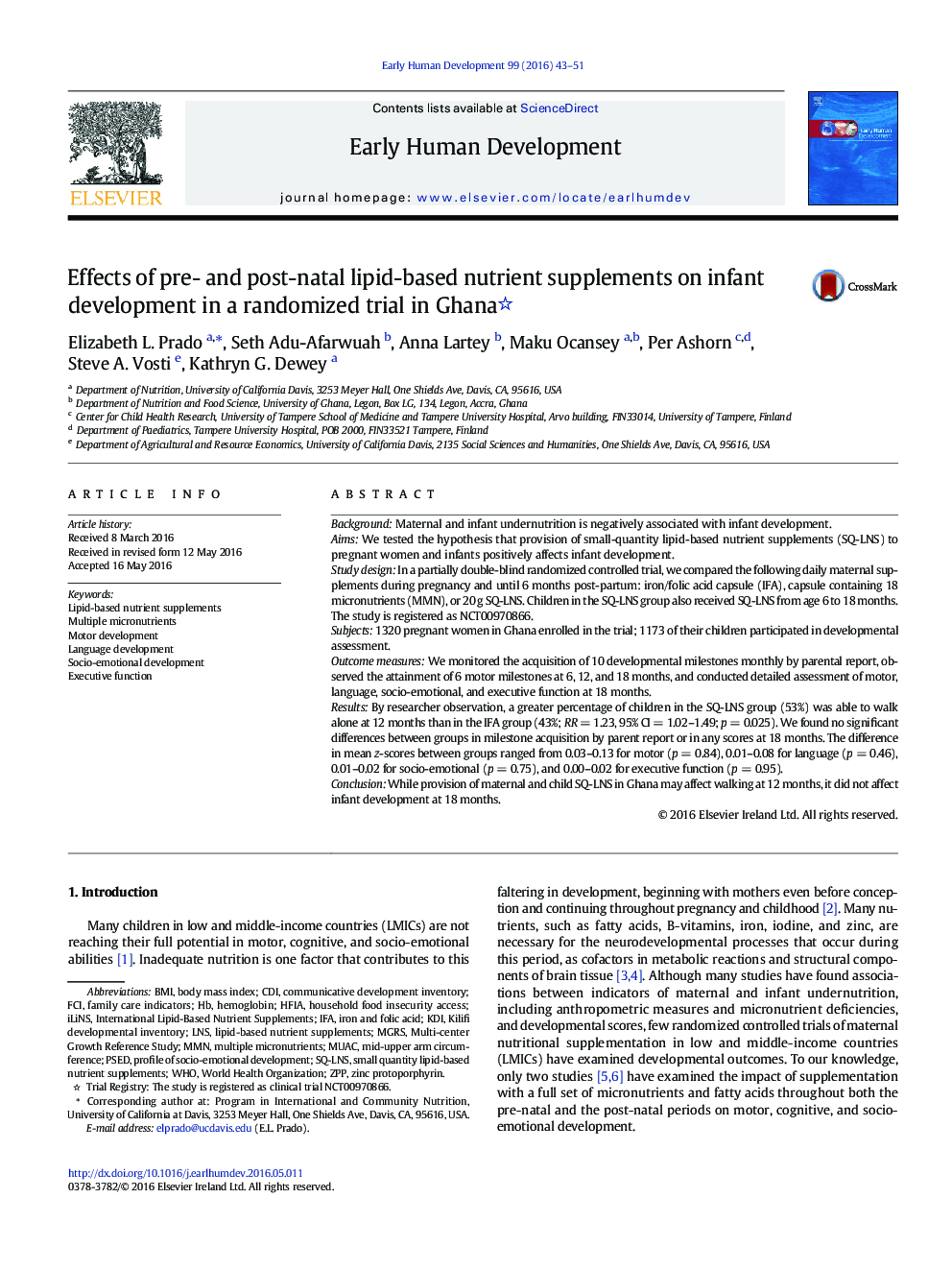| Article ID | Journal | Published Year | Pages | File Type |
|---|---|---|---|---|
| 3916420 | Early Human Development | 2016 | 9 Pages |
•Few studies have examined the effects of combined pre- and post-natal nutritional supplementation on child development.•A greater percentage of children who received SQ-LNS were able to walk at age 12 months, compared to a control group.•At age 18 months, no differences were found between groups in motor, language, socio-emotional, or executive function scores.
BackgroundMaternal and infant undernutrition is negatively associated with infant development.AimsWe tested the hypothesis that provision of small-quantity lipid-based nutrient supplements (SQ-LNS) to pregnant women and infants positively affects infant development.Study designIn a partially double-blind randomized controlled trial, we compared the following daily maternal supplements during pregnancy and until 6 months post-partum: iron/folic acid capsule (IFA), capsule containing 18 micronutrients (MMN), or 20 g SQ-LNS. Children in the SQ-LNS group also received SQ-LNS from age 6 to 18 months. The study is registered as NCT00970866.Subjects1320 pregnant women in Ghana enrolled in the trial; 1173 of their children participated in developmental assessment.Outcome measuresWe monitored the acquisition of 10 developmental milestones monthly by parental report, observed the attainment of 6 motor milestones at 6, 12, and 18 months, and conducted detailed assessment of motor, language, socio-emotional, and executive function at 18 months.ResultsBy researcher observation, a greater percentage of children in the SQ-LNS group (53%) was able to walk alone at 12 months than in the IFA group (43%; RR = 1.23, 95% CI = 1.02–1.49; p = 0.025). We found no significant differences between groups in milestone acquisition by parent report or in any scores at 18 months. The difference in mean z-scores between groups ranged from 0.03–0.13 for motor (p = 0.84), 0.01–0.08 for language (p = 0.46), 0.01–0.02 for socio-emotional (p = 0.75), and 0.00–0.02 for executive function (p = 0.95).ConclusionWhile provision of maternal and child SQ-LNS in Ghana may affect walking at 12 months, it did not affect infant development at 18 months.
